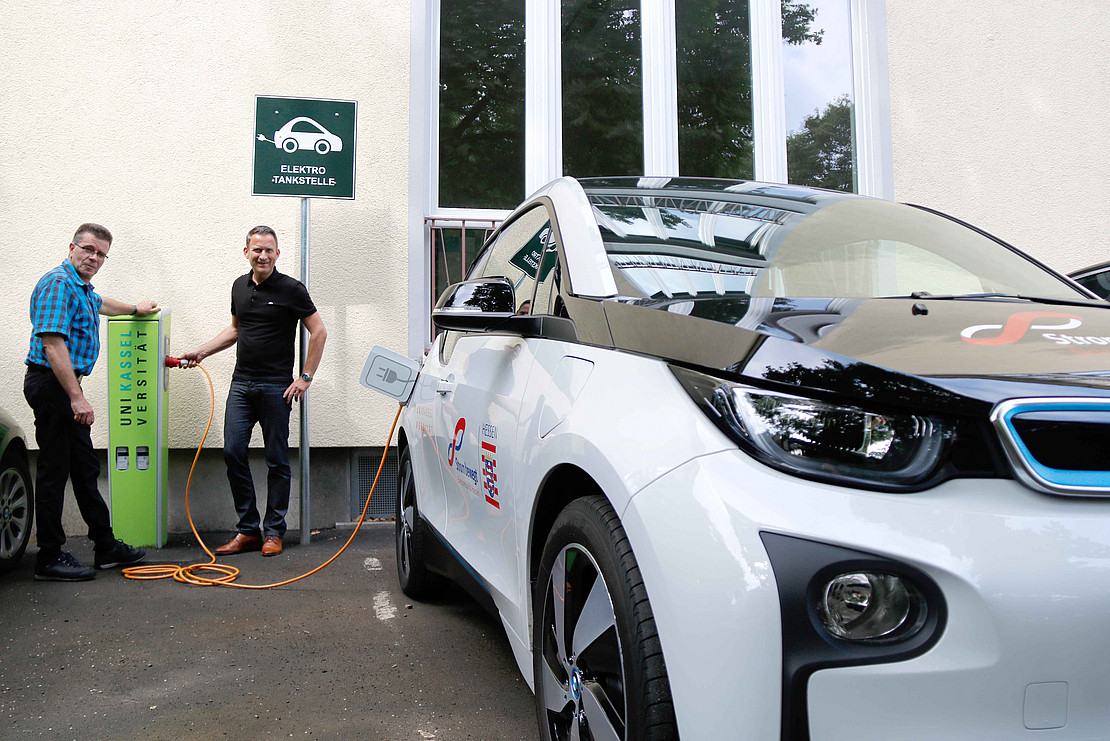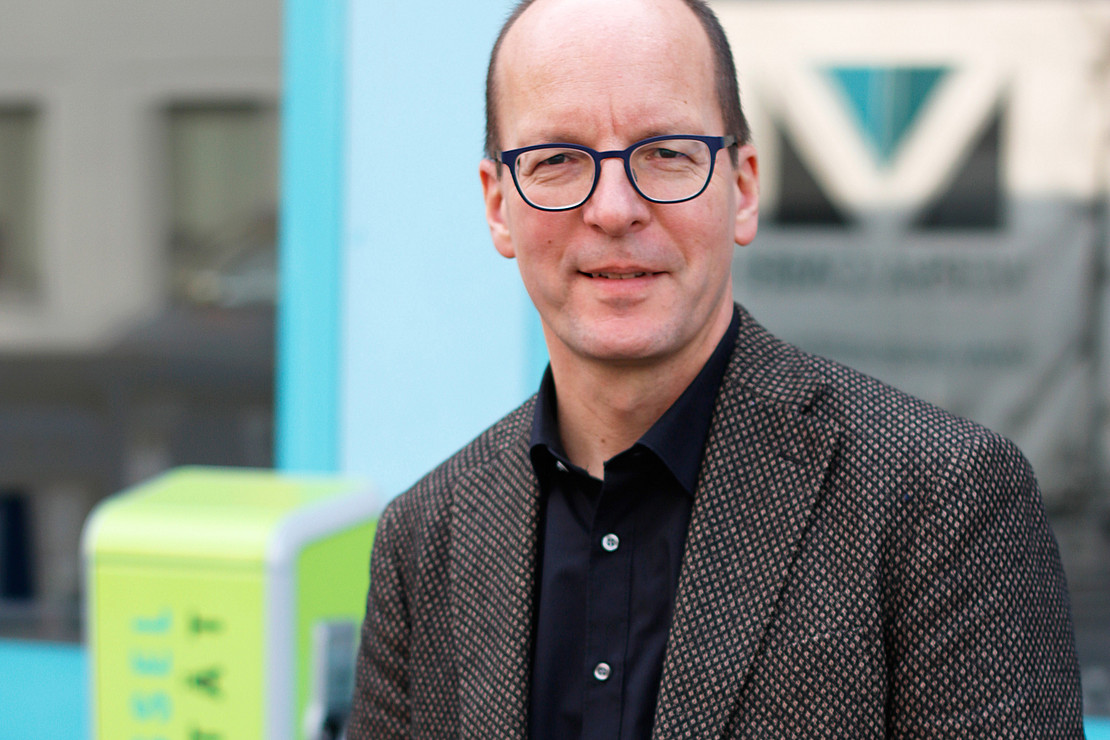The content on this page was translated automatically.
University of Kassel builds charging stations for electric cars
 Image: University of Kassel
Image: University of Kassel Image: University of Kassel
Image: University of KasselIt is the first step in the development of a charging infrastructure for electric vehicles: initially, three charging stations with two charging options each were installed at the Holländischer Platz campus in Kassel (near the central administration) and at the university locations Wilhelmshöher Allee in Kassel (Adolfstraße parking lot) and in Witzenhausen (Nordbahnhofstraße campus). In addition, four so-called wall boxes, i.e. intelligent wall charging stations, will be installed, three of which will be in the underground parking garage at Holländischer Platz and one in the building for operational technology, also on the Holländischer Platz campus. These will initially be used to charge the existing electric service vehicles and the electric vehicles of other public institutions, e.g. vehicles belonging to ministries or guests from other universities. The system may later be opened up to vehicles belonging to employees.
Until now, vehicles could only charge via the normal grid. However, while this only achieves a charging capacity of 3.7 kW, the new charging stations have a charging capacity of 22 kW, which significantly shortens charging times.
"The charging stations are part of a larger program with which the university wants to make its operations significantly more sustainable," explained Dr. Oliver Fromm, Chancellor of the university. "In many areas, such as the energy efficiency of buildings or waste avoidance, we have already come a long way, but we want even more. Above all, we want to reduce our CO2 emissions, and environmentally friendly hybrid and electric vehicles will help us achieve this." The university uses 100 percent green electricity as part of the joint electricity supply contract with the state of Hesse.
The charging stations each have two charging points. One vehicle can be charged at each wallbox. The charging process is activated contactlessly using a charging card.
The cost of installing the systems is around 70,000 euros, around half of which is being financed from the university's construction budget. The other half is covered by the Hessian Ministry of the Environment from funds for the implementation of the Integrated Climate Protection Plan Hesse (iKSP) 2025. With the climate protection plan, the Hessian state government has set itself the goal of becoming climate-neutral by 2050. Greenhouse gas emissions should then be reduced by at least 90 percent compared to 1990. By 2025, greenhouse gas emissions are to be reduced by 40 percent compared to 1990 levels.
Contact:
Dirk Schnurr
Energy Efficiency Manager
University of Kassel
Department of Building, Technology and Real Estate
Tel.: 0561 804 2162
E-mail: dirk.schnurr[at]uni-kassel[dot]de
Sebastian Mense
University of Kassel
Communications, Press and Public Relations
Tel.: +49 561 804-1961
E-mail: presse[at]uni-kassel[dot]de